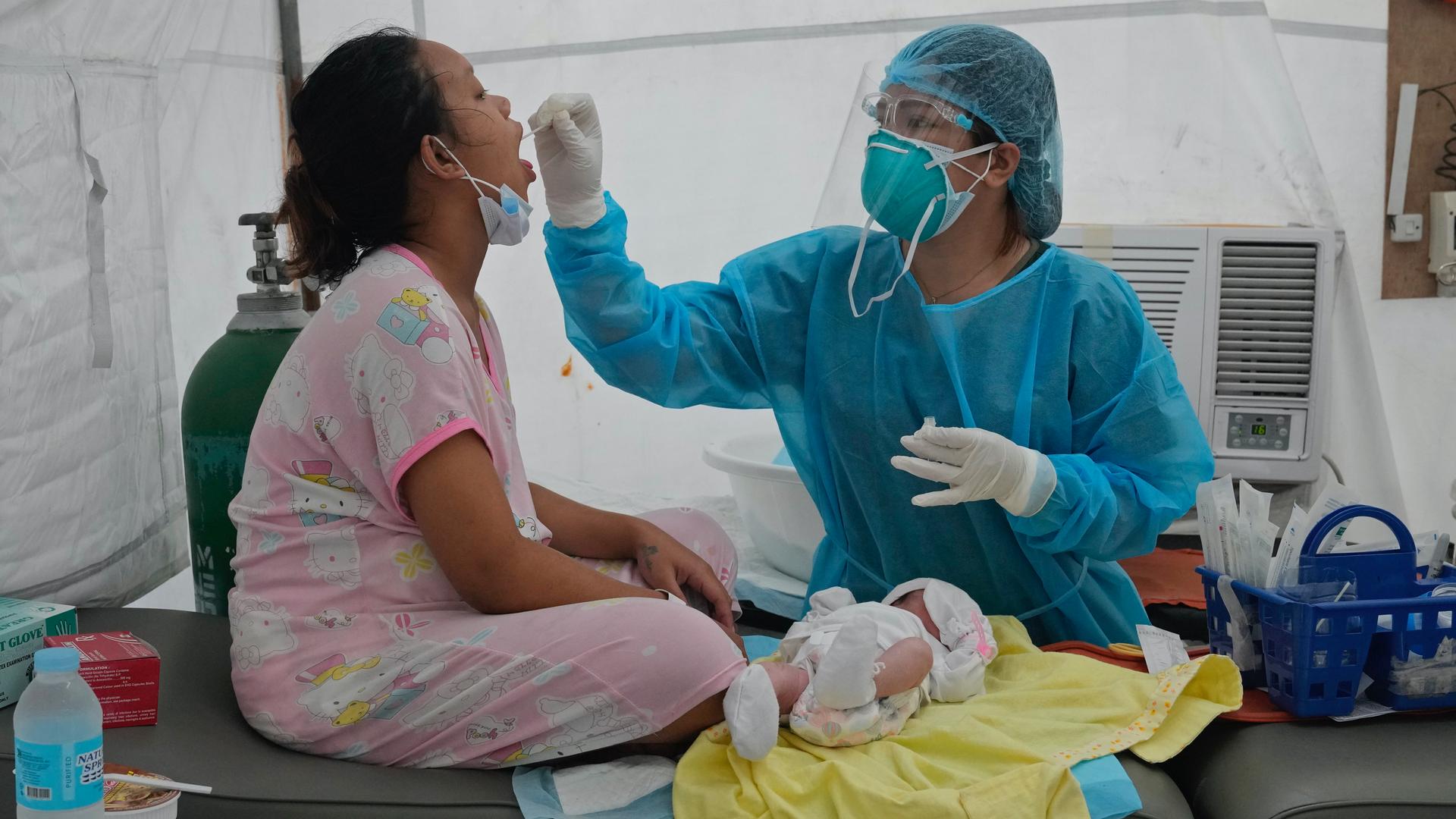New guidance that shortens the isolation period for health care workers in the Philippines who catch COVID-19 has drawn the ire of many doctors and nurses across the country who say the reason for the change is not scientifically sound.
On Jan. 6, the Inter-Agency Task Force, the group in charge of the Philippines’ pandemic response, released new rules stating that fully vaccinated, front-line workers who test positive for the virus only have to isolate themselves for five days before returning to work. The previous rules gave a 10-day timeline.
“There is evidence, really, that fully vaccinated individuals, and especially those with boosters, have lower viral load than those who are unvaccinated or partially vaccinated.”
“There is evidence, really, that fully vaccinated individuals, and especially those with boosters, have lower viral load than those who are unvaccinated or partially vaccinated,” the Philippines Department of Health Undersecretary Maria Rosario Vergeire told news network ANC earlier this week.
Related: Inclusion, walkability will be key to rebuilding cities after the pandemic
Still, many front-line workers and organizations immediately condemned the new rules, calling them “not safe, not fair” and not a solution to the “chronic and accute problem of understaffing.”
If this all sounds familiar, particularly for an American audience, it should.
The Centers for Disease Control and Prevention issued the same guidance for US health care workers just last month, with CDC head Rochelle Walensky pushing the same rationale in interviews with the media.
“So, having that as evidence, we have adopted the CDC guidelines,” Vergeire told ANC, noting that individual hospitals can decide if they want to implement them. She said the need to bolster the Philippine health care workforce, which has seen more and more people become infected with COVID-19, prompted the policy shift.
Philippine General Hospital in Manila, the country’s leading COVID-19 hospital, soon waded further into the controversy by announcing that they would allow vaccinated workers who have been exposed to COVID-19 to come into work — as long as they are asymptomatic.
Related: Uganda’s schools reopen, ending world’s longest lockdown
PGH Dr. Jonas del Rosario told CNN Philippines that those workers wouldn’t pose a risk to patients and colleagues.
“When we ask them to go back to work, they’re also wearing the proper PPE [personal protective equipment],” he said.
They’ll also expect workers to monitor themselves and if they start feeling symptoms, they’ll be pulled out of work and tested, Rosario said — and if that test comes back positive, they’ll be sent home.
Neither the Department of Health nor the task force coordinating pandemic response immediately responded to The World’s requests for comment.
Overworked, understaffed
The new guidance comes at a time when coronavirus cases are surging in the Philippines, slamming short-staffed medical centers and overwhelming overworked doctors and nurses who report low morale and widespread frustration.
This past week, the country not only breached 3 million total cases, it also broke its own daily record for new cases for the entire pandemic four times.
Nurse Cristy Donguines said that she and her staff at Jose R. Reyes Memorial Medical Center are exhausted heading into the junior year of the pandemic.
“We are overwhelmed, it’s very, very difficult and very, very tragic for us,” Donguines said.
Related: India postpones in-school learning as omicron surges
“Even though we are not a COVID-referral hospital, we are still catering to COVID patients,” she said. “But the problem is we cannot handle it anymore because we are super, super understaffed.”
The nurse of over 22 years said it’s not unusual to work 16 hours one day and then 12 hours the next.
Still, her union of government and private health care workers, the Alliance of Health Care Workers, condemns the rule change.
“We [do not] agree on this kind of very inhumane department order. It is an anti-health care worker guideline.”
“We [do not] agree on this kind of very inhumane department order,” Donguines said. “It is an anti-health care worker guideline.”
Dr. Joshua San Pedro, a community physician in Metro Manila and with the Coalition for People’s Right to Health, also opposes the policy shift.
“It’s concerning that you might be going back to work infectious,” he said, pointing out that front-line workers in the US have also pushed back on the issue that there’s been no solid evidence that people are less contagious after five days of infection.
Related: Brazil heads into latest COVID surge amid public health information blackout
San Pedro said that these new rules, along with the perpetual issues facing Philippine health care workers like PPE shortages, low pay and meager benefits, really have the country’s health care workers feeling dejected.
“And the concern that nothing is really changing wave after wave, surge after surge and that the work is just getting harder and harder,” he said.
